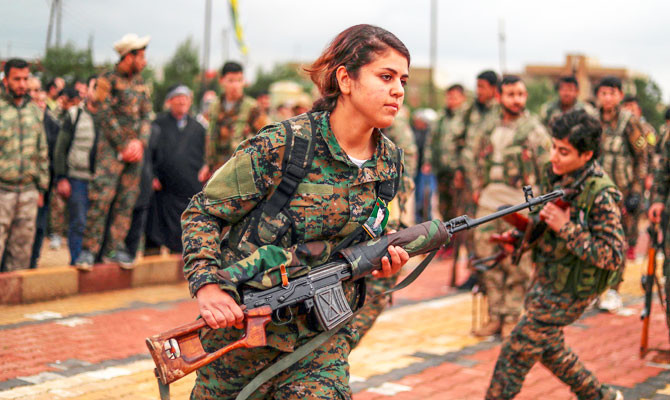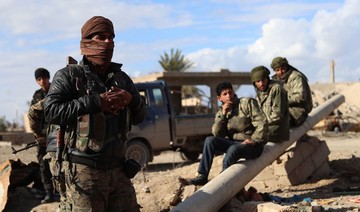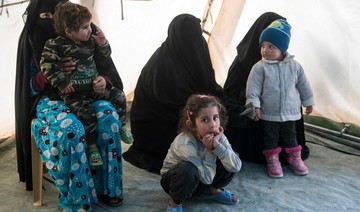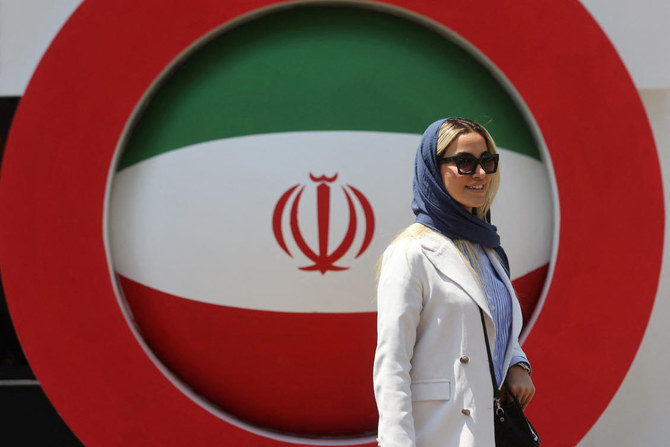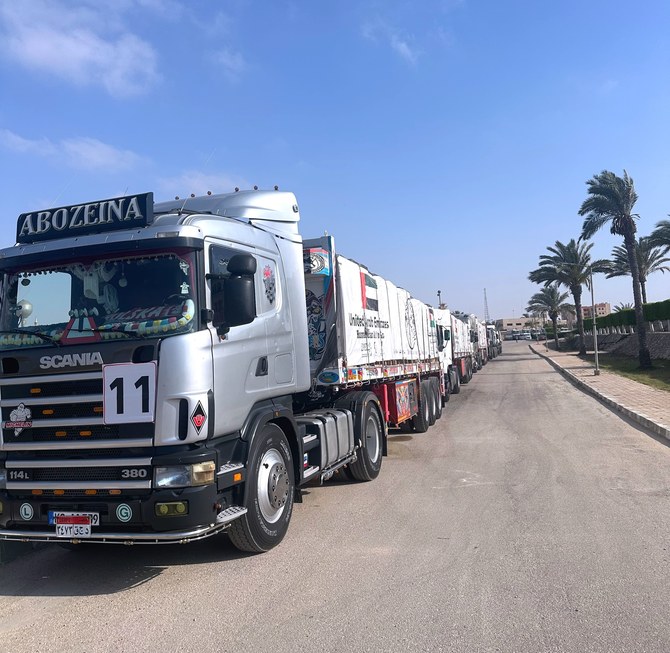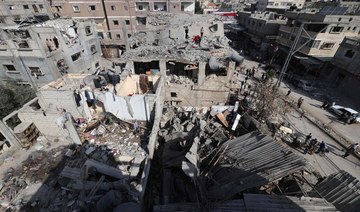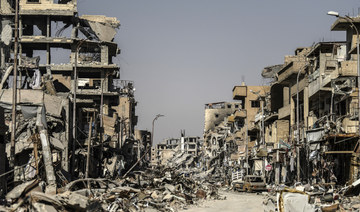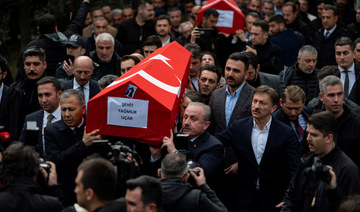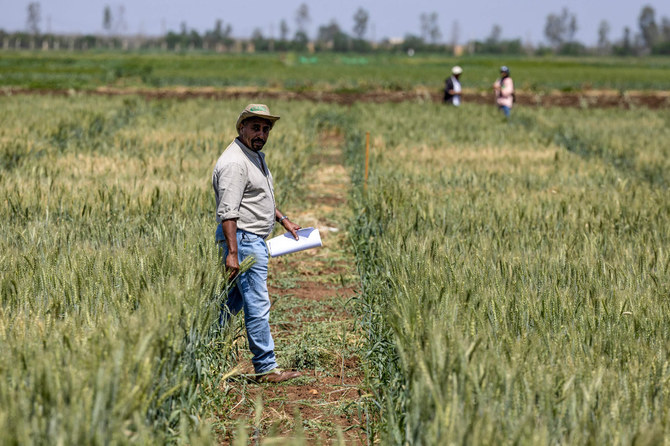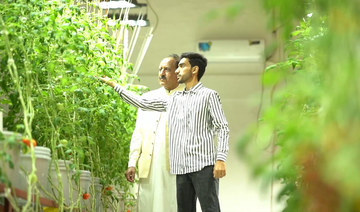BAGHDAD: Their home countries don’t want them and holding trials in Syria isn’t an option: now suspected foreign terrorists could end up facing tough justice over the border in Iraq.
Both countries have suffered for years at the hands of the Daesh group and Iraqi courts have already meted out hefty sentences to hundreds of foreigners detained on its soil, often after lighting-quick trials.
As the final shred of the once-sprawling terrorists “caliphate” crumbles in eastern Syria, Kurdish-led forces backed by the US have captured hundreds more diehard foreign fighters.
The American military — which spearheads an international coalition fighting Daesh — has in the past shown itself willing to hand those captured in Syria to the authorities in Iraq.
In August AFP attended the Baghdad trial of 58-year-old French citizen Lahcene Gueboudj, who said he had been spirited from Syria to Iraq by US troops.
Belkis Wille of Human Rights Watch said the organization knows of at least five instances in which US forces handed foreign detainees over to Iraq’s Counter Terrorism Service.
They include Australian and Lebanese citizens transported out of Kurdish-controlled areas, at least one of whom was eventually sentenced to death in Iraq.
Iraqi justice can be harsh and its courts have doled out death or life sentences to hundreds of foreigners accused of being Daesh members, including some 100 women.
Others who come from Syria can expect similar treatment.
“They are at risk of torture and unfair trials in Iraq,” Wille warned.
The fate of foreign fighters in Syria has come into sharper focus since President Donald Trump’s announcement in December that the US will withdraw its troops from the war-torn country.
Washington has stepped up pressure on its reluctant allies to bring home hundreds of terrorists, but the issue is politically sensitive in countries like Britain and France.
Governments have been grappling for weeks with the question of foreign fighters detained by the Kurdish-led Syrian Democratic Forces, who have warned that they may not be able to guard their jails once US troops leave.
France, hit by repeated deadly Daesh attacks, has so far opposed returning terrorists. But since Trump’s announcement, Paris has said it is studying “all options.”
On a visit to Iraq this week, French Defense Minister Florence Parly warned of the need “to avoid some terrorists ending up in the wild and dispersing.”
Hisham Al-Hashimi, a researcher on terrorists movements, told AFP that a deal appears to have been struck with Iraq “at the very highest level and in secret” to tackle the issue.
Such a pact allows foreign fighters’ countries of origin to avoid politically fraught repatriations; in exchange, Iraq will receive “ultra modern arms and crucial military equipment,” Hashimi said.
“Iraq can put anyone on trial who passed through its territory, even if they didn’t fight there and just headed to Syria,” he said.
But while such a deal might solve a headache for politicians, it has raised serious concerns among relatives and representatives of those detained.
French lawyer Vincent Brengarth, who is handling the cases of some of those detained, questioned “how it could be justified that Iraqi courts would have jurisdiction” over crimes committed in Syria.
French officials say Kurdish forces in Syria are currently detaining some 60 adult French citizens.
Veronique Roy, a member of a group of around 70 French families with relatives who went to Daesh territory, said it would be “tragic” if captives were handed over to Baghdad.
Iraqi law means that anyone found guilty of joining a “terrorist group” can face the death penalty and its justice system has been accused of providing scant chance for a fair trial.
A number of foreign fighters have already been sentenced to death in Iraq, although three French terrorists tried so far have been handed life terms that equate to 20 years in prison.
The families of those in Syria insist that their home countries should take responsibility.
“We are pushing the problem back but not settling it,” said Roy.
“France should not subcontract this out.”








